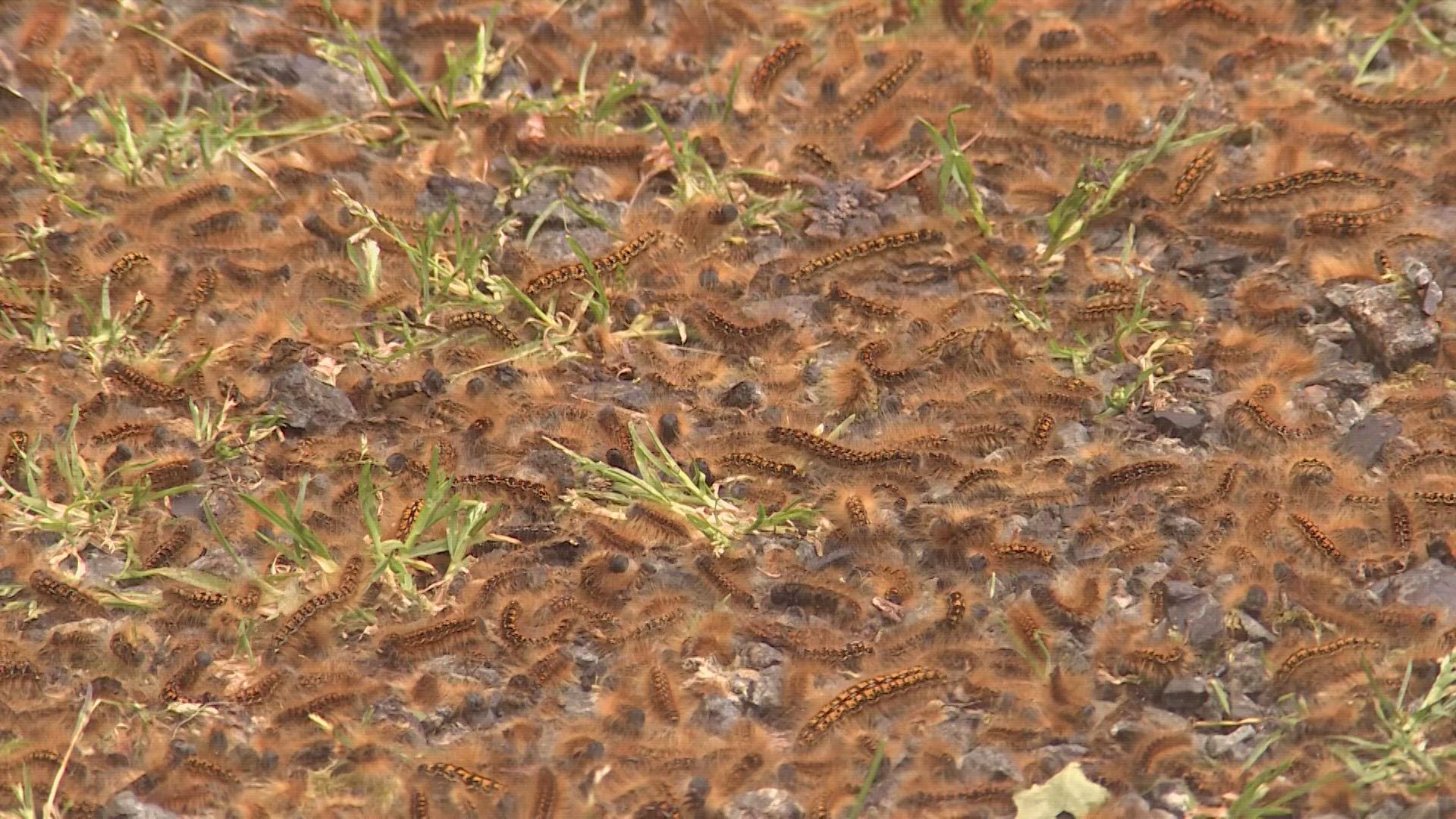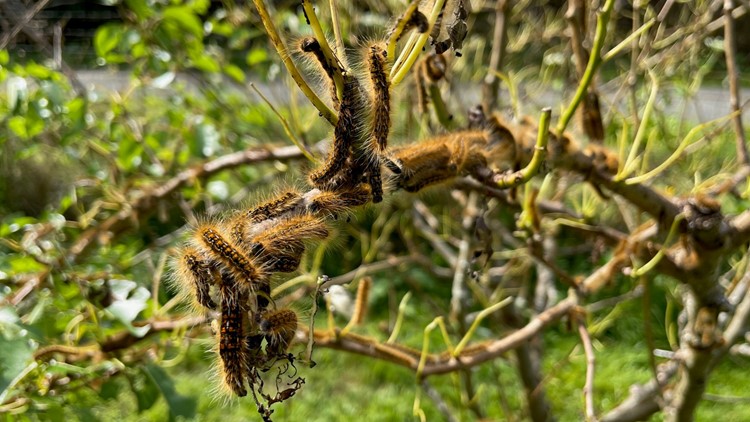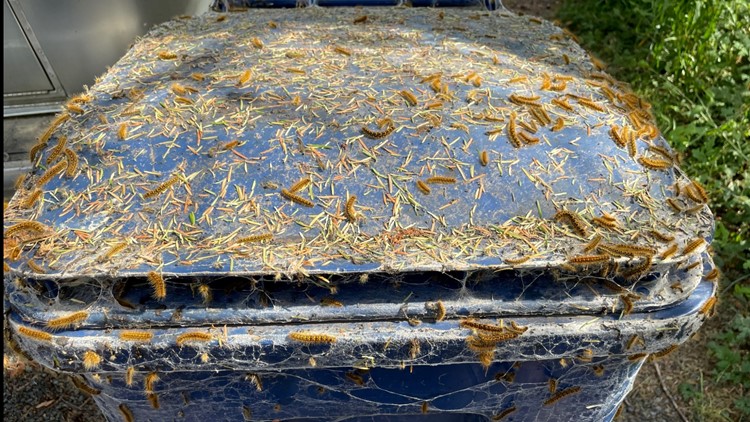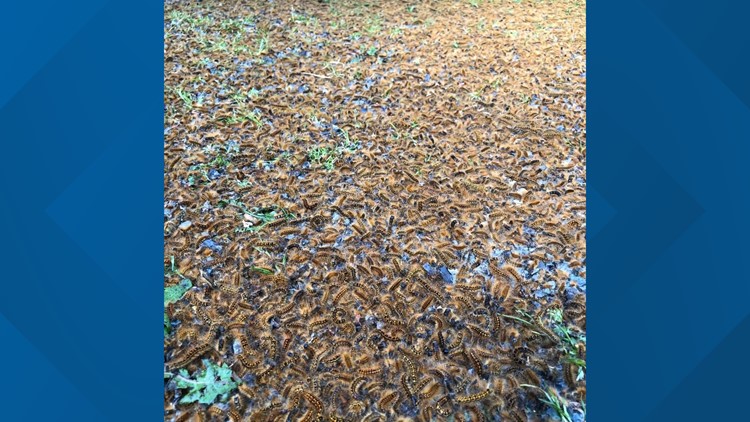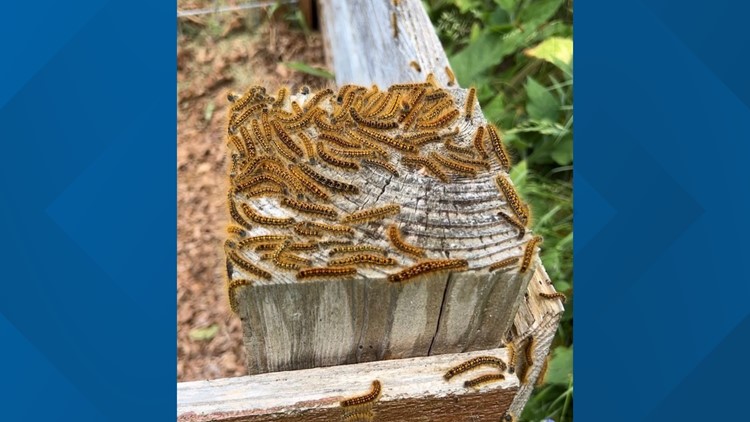SKAGIT COUNTY, Wash. — Guemes Island in Skagit County is popular for its beaches, incredible scenery and solitude.
But lately, an unwelcome visitor is moving in. And they're arriving by the millions.
An explosion of caterpillars has islanders like Randy Rinehart shoveling insects off his property by the shovel load.
"They go up your neck and in your pants and everything else," Rinehart said, still feeling squeamish. "My own hair was freaking me out, so I had to get a haircut."
Rinehart's orchard and the surrounding Alder trees are picked clean by the caterpillars. At a time when leaves are supposed to be flourishing, the branches look like it's late fall. And the bugs are falling to the ground like rain.
Caterpillar invasion in Skagit County's Guemes Island
While caterpillars are not uncommon on Guemes, Rinehart and his neighbors are enduring the peak of a seven-year cycle, when these bugs dominate the sidewalks, roads, fenceposts and just about everything.
And it doesn't seem to be letting up.
"I sweep my walkways every day, and every day they're covered again," Rinehart said standing in his driveway where it feels like a carpet of creepy crawlers.
The insects are Western Tent caterpillars. Their nests or tents, reside in the trees and bushes. And the state Department of Natural Resources (DNR) said it's a perfect storm of conditions right now for the population explosion to occur.
"I have never seen anything like this in Washington," said Glenn Kohler, DNR forest entomologist. "And I've been with DNR for 15 years."
Kohler said the caterpillars multiply so quickly, because of a lack of predators, warmer drought conditions and a lack of viruses that typically control the population.
"Drought conditions will create smaller leaves with a greater sugar concentration," Kohler said. "So it's possible these caterpillars are also just getting a more nutritious food source right now."
Kohler said population increases like this are cyclical and these caterpillars will last a few weeks.
And if you're thinking Guemes Island will soon be filled with butterflies, think again.
"Nothing really pretty here," Kohler said. "It will just be kind of an orange, brown moth."
This is more unwelcome news for Rinehart, who keeps the broom handy these days.
"We just do what we've got to do," Rinehart said. "We've just got to roll with it."

